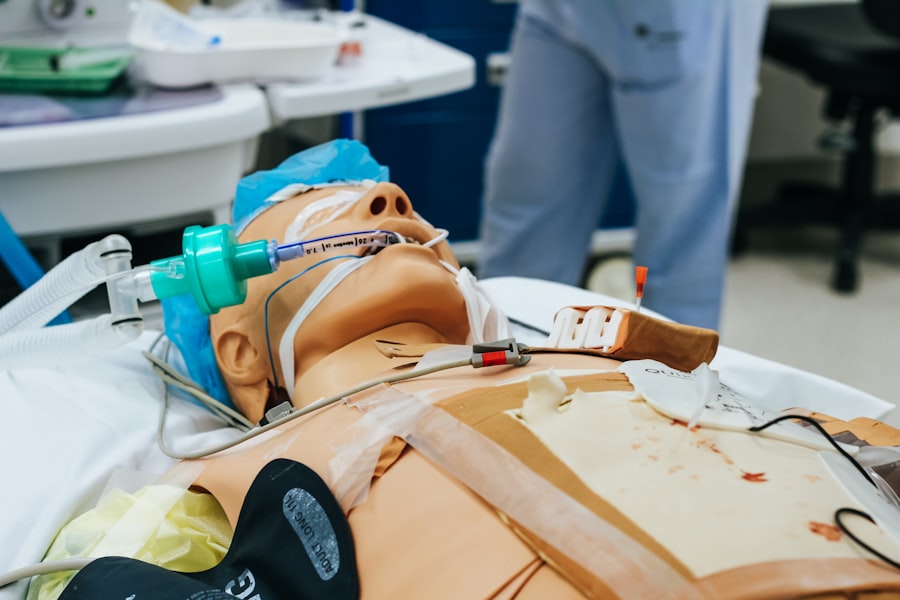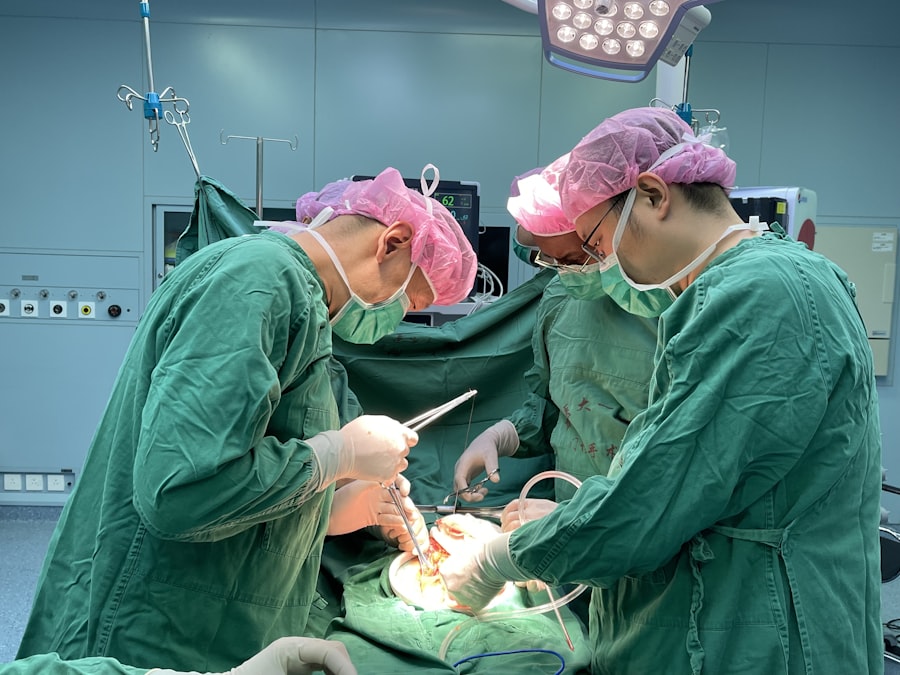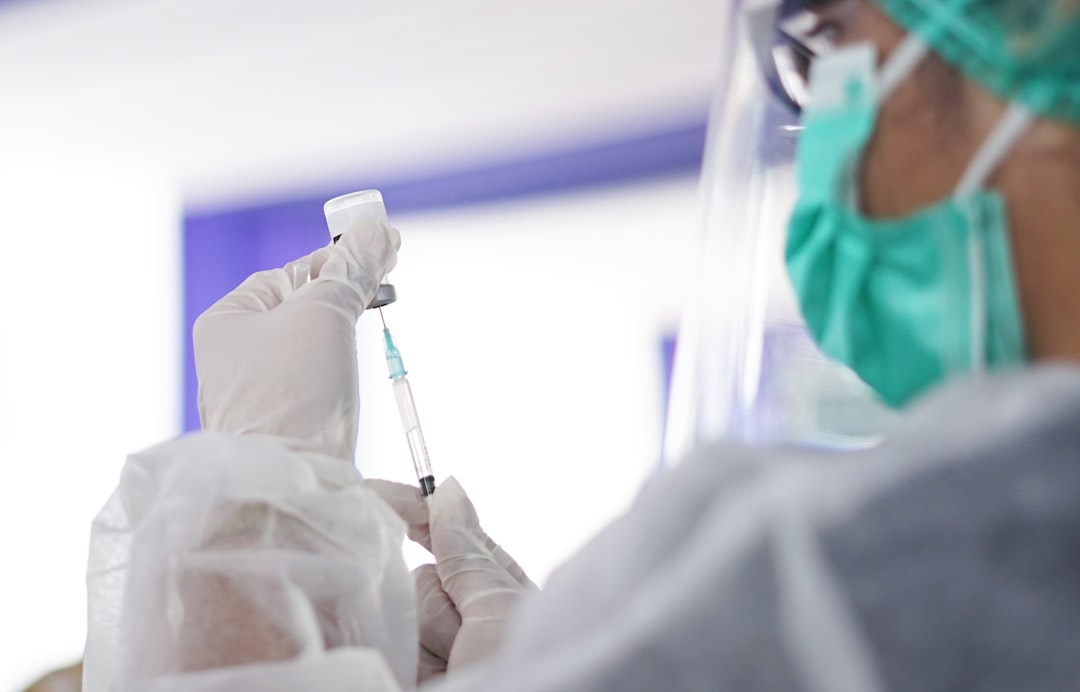Anesthesia awareness refers to a rare phenomenon where a patient becomes conscious during surgery or a medical procedure while under general anesthesia. This condition can lead to the patient experiencing sensations, sounds, or even pain while being unable to move or communicate. The experience can range from vague awareness of the surroundings to full consciousness, where the individual can hear conversations and feel sensations but is unable to respond.
This unsettling experience can be profoundly distressing, as it often leaves individuals feeling trapped in their own bodies. The phenomenon of anesthesia awareness is not just a medical curiosity; it raises significant concerns about patient safety and the effectiveness of anesthetic techniques. While most patients are blissfully unaware during procedures, those who experience awareness may find themselves grappling with the psychological aftermath long after the physical effects of anesthesia have worn off.
Understanding what anesthesia awareness entails is crucial for both patients and healthcare providers, as it highlights the importance of effective communication and informed consent in the surgical process.
Key Takeaways
- Anesthesia awareness occurs when a patient becomes conscious during surgery and can recall the event.
- It is a rare but serious complication, with higher risk in certain medical and surgical conditions.
- Psychological effects can include trauma, anxiety, and post-traumatic stress disorder.
- Anesthesiologists use monitoring techniques and tailored anesthesia plans to reduce the risk.
- Open communication and ongoing research are essential to improve patient safety and support affected individuals.
How Common is Anesthesia Awareness?
Anesthesia awareness is considered a rare occurrence, with estimates suggesting that it affects approximately 1 to 2 individuals per 1,000 patients undergoing general anesthesia. While this may seem like a small number, the implications for those who experience it can be significant. The risk of awareness can vary depending on several factors, including the type of surgery being performed, the anesthetic techniques used, and the patient’s medical history.
For instance, high-risk surgeries or those requiring lighter levels of anesthesia may increase the likelihood of awareness. Despite its rarity, the potential for anesthesia awareness has garnered attention in both medical literature and popular media.
It is essential to recognize that while the risk exists, advancements in anesthetic practices and monitoring technologies have significantly reduced the incidence of awareness in recent years.
Factors that Increase the Risk of Anesthesia Awareness

Several factors can contribute to an increased risk of experiencing anesthesia awareness. One primary factor is the type of surgical procedure being performed. High-risk surgeries, particularly those involving significant blood loss or requiring lighter anesthesia levels for medical reasons, may elevate the chances of a patient becoming aware during the operation.
Additionally, patients with certain medical conditions, such as obesity or sleep apnea, may also face a higher risk due to complications that can arise during anesthesia. Another critical factor is the use of specific anesthetic agents. Some medications may not provide adequate sedation for all patients, leading to varying levels of consciousness during surgery.
Furthermore, individual differences in metabolism and drug response can influence how effectively anesthesia works for each person. Understanding these factors can empower you as a patient to engage in informed discussions with your healthcare team about your specific risks and concerns regarding anesthesia awareness.
The Psychological Impact of Anesthesia Awareness
| Metric | Description | Value / Range | Source / Notes |
|---|---|---|---|
| Incidence Rate | Percentage of patients experiencing anesthesia awareness | 0.1% – 0.2% | Studies in general anesthesia cases |
| Post-Traumatic Stress Disorder (PTSD) Prevalence | Percentage of patients developing PTSD after awareness | 20% – 70% | Varies by study and assessment method |
| Common Psychological Symptoms | Symptoms reported by patients post-awareness | Anxiety, depression, flashbacks, nightmares | Clinical observations and patient reports |
| Duration of Psychological Impact | Timeframe symptoms persist after awareness event | Weeks to several months | Depends on individual and treatment |
| Effectiveness of Psychological Interventions | Reduction in symptoms after therapy | 50% – 80% symptom improvement | Cognitive-behavioral therapy and counseling |
| Patient Awareness During Surgery | Percentage recalling explicit events during anesthesia | 0.1% – 0.2% | Confirmed by postoperative interviews |
The psychological impact of anesthesia awareness can be profound and long-lasting. Many individuals who experience this phenomenon report feelings of fear, anxiety, and helplessness during their time of awareness. The inability to move or communicate while being aware of one’s surroundings can lead to feelings of isolation and panic.
After the experience, some individuals may develop symptoms similar to post-traumatic stress disorder (PTSD), including flashbacks, nightmares, and heightened anxiety related to medical procedures. The emotional toll of anesthesia awareness can extend beyond the immediate aftermath of surgery. Patients may find themselves grappling with trust issues regarding medical professionals and anxiety about future medical interventions.
It is crucial for healthcare providers to recognize these potential psychological effects and offer appropriate support and resources to help individuals process their experiences. Open communication about these feelings can foster a sense of understanding and healing for those affected by anesthesia awareness.
Recognizing the Symptoms of Anesthesia Awareness
Recognizing the symptoms of anesthesia awareness is essential for both patients and healthcare providers. Individuals who have experienced this phenomenon may report a range of sensations, including hearing voices or sounds from the operating room, feeling pressure or pain, or having vivid visual experiences. Some may describe a sense of floating or detachment from their bodies, while others might recall specific conversations or events that occurred during their awareness.
It is important to note that not all patients will remember their experiences clearly; some may have fragmented memories or no recollection at all. However, those who do remember often describe their experiences as distressing or traumatic. If you suspect that you or someone you know has experienced anesthesia awareness, it is vital to seek support from healthcare professionals who can provide guidance and resources for coping with these memories.
How Anesthesiologists Work to Prevent Anesthesia Awareness

Anesthesiologists play a critical role in preventing anesthesia awareness through careful planning and monitoring during surgical procedures. One key strategy involves using advanced monitoring techniques to assess a patient’s level of consciousness throughout surgery. By employing tools such as bispectral index (BIS) monitoring, anesthesiologists can obtain real-time data on brain activity and adjust anesthetic levels accordingly to ensure adequate sedation.
Additionally, anesthesiologists take into account individual patient factors when determining the appropriate anesthetic plan. This includes evaluating medical history, current medications, and any previous experiences with anesthesia. By tailoring the anesthetic approach to each patient’s unique needs, anesthesiologists can significantly reduce the risk of awareness while ensuring patient safety and comfort during procedures.
Legal and Ethical Implications of Anesthesia Awareness
The occurrence of anesthesia awareness raises important legal and ethical considerations within the medical field. Patients who experience this phenomenon may seek legal recourse if they believe that negligence on the part of healthcare providers contributed to their experience. Legal cases surrounding anesthesia awareness often focus on issues such as informed consent, proper monitoring practices, and adherence to established protocols.
From an ethical standpoint, healthcare providers have a responsibility to ensure that patients are fully informed about the risks associated with anesthesia, including the possibility of awareness. This involves transparent communication during preoperative consultations and addressing any concerns patients may have about their upcoming procedures. By fostering an environment of trust and open dialogue, healthcare professionals can help mitigate anxiety related to anesthesia awareness while upholding ethical standards in patient care.
How to Discuss Anesthesia Awareness with Your Anesthesiologist
If you have concerns about anesthesia awareness before undergoing a procedure, it is essential to communicate openly with your anesthesiologist. Start by expressing your worries and asking questions about the specific risks associated with your surgery. Your anesthesiologist can provide valuable information about the measures they take to minimize the risk of awareness and explain how they will monitor your level of consciousness during the procedure.
Additionally, discussing your medical history and any previous experiences with anesthesia can help your anesthesiologist tailor their approach to your individual needs. By engaging in this dialogue, you can gain a better understanding of what to expect during your procedure and feel more empowered in your healthcare journey.
Support and Resources for Those Who Have Experienced Anesthesia Awareness
For individuals who have experienced anesthesia awareness, finding support and resources can be crucial for healing and coping with their experiences. Many hospitals and surgical centers offer counseling services specifically designed for patients who have undergone traumatic medical experiences. These services can provide a safe space for individuals to share their feelings and receive guidance from trained professionals.
In addition to professional support, connecting with support groups or online communities can be beneficial for those seeking shared experiences and understanding from others who have faced similar challenges. These platforms allow individuals to share their stories, exchange coping strategies, and foster a sense of community among those affected by anesthesia awareness.
Research and Advances in Anesthesia to Minimize the Risk of Anesthesia Awareness
Ongoing research in the field of anesthesiology continues to focus on minimizing the risk of anesthesia awareness through advancements in technology and techniques. Studies are exploring new anesthetic agents that provide deeper sedation with fewer side effects while also investigating improved monitoring methods that enhance patient safety during procedures. Additionally, researchers are examining factors such as genetic predispositions that may influence an individual’s response to anesthesia.
By understanding these variables better, healthcare providers can develop more personalized approaches to anesthesia care that prioritize patient safety and comfort while reducing the likelihood of awareness.
Advocating for Patient Safety in Anesthesia Practice
In conclusion, advocating for patient safety in anesthesia practice is paramount in addressing concerns related to anesthesia awareness. As a patient, being informed about the risks associated with anesthesia empowers you to engage in meaningful discussions with your healthcare team. By understanding what anesthesia awareness entails and recognizing its potential psychological impact, you can take proactive steps toward ensuring your safety during surgical procedures.
Healthcare providers also play a vital role in fostering an environment where open communication is encouraged, allowing patients to voice their concerns without fear or hesitation. Through continued research and advancements in anesthetic practices, we can work together toward minimizing the risk of anesthesia awareness while prioritizing patient well-being in every aspect of care.
Anesthesia awareness, a rare but distressing phenomenon where patients become conscious during surgery and can perceive their surroundings, is a topic of significant concern in the medical community. For a deeper understanding of this issue, you can read more in the article available at Freaky Science, which explores the implications and experiences associated with anesthesia awareness.
WATCH THIS! Your Brain Is Not Real (The Receiver Theory)
FAQs
What is anesthesia awareness?
Anesthesia awareness occurs when a patient becomes conscious during surgery and can recall the event afterward, despite being under general anesthesia.
How common is anesthesia awareness?
Anesthesia awareness is rare, occurring in approximately 0.1% to 0.2% of general anesthesia cases, though the exact rate can vary depending on the type of surgery and anesthesia used.
What causes anesthesia awareness?
Causes include insufficient dosage of anesthetic drugs, equipment malfunction, or the patient’s unique response to anesthesia. Certain surgeries requiring lighter anesthesia may also increase the risk.
What are the symptoms of anesthesia awareness?
Symptoms can include hearing conversations, feeling pressure or pain, or being unable to move or communicate during surgery. Some patients may experience distress or post-traumatic stress afterward.
How is anesthesia awareness diagnosed?
Diagnosis is primarily based on patient reports of intraoperative recall. Monitoring devices during surgery can help detect signs of consciousness, but no method is foolproof.
Can anesthesia awareness be prevented?
Prevention involves careful monitoring of anesthetic depth, using appropriate drug dosages, and employing brain activity monitors when necessary, especially in high-risk cases.
What should a patient do if they experience anesthesia awareness?
Patients should inform their healthcare provider immediately. Psychological support and counseling may be recommended to address any emotional or psychological effects.
Is anesthesia awareness dangerous?
While it is generally not physically harmful, anesthesia awareness can cause significant psychological trauma, including anxiety, nightmares, and post-traumatic stress disorder (PTSD).
Are there specific surgeries with higher risk of anesthesia awareness?
Yes, surgeries requiring lighter anesthesia, such as cardiac surgery, trauma surgery, or cesarean sections, may have a higher risk of anesthesia awareness.
What advancements exist to reduce the risk of anesthesia awareness?
Technological advances like bispectral index (BIS) monitoring and improved anesthetic agents help anesthesiologists better assess and maintain appropriate anesthesia depth to reduce the risk.
